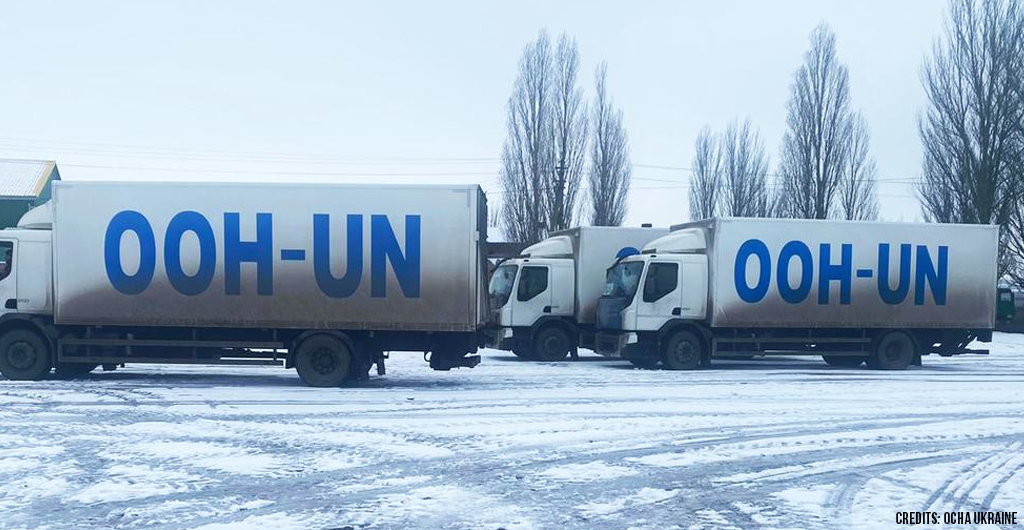UN aid convoys deliver lifesaving relief to Ukraine’s war-ravaged east
UN News – Two UN aid convoys have reached communities with acute needs near the contact line in Ukraine’s war-shattered east this week, relief coordinators reported.
Medicines, roofing repair kits, bottled water and solar lamps were offloaded, highlighting the desperate plight of many thousands of people who are unable or unwilling to leave their homes, amid “regular” shelling attacks.
On Thursday, a five-lorry inter-agency convoy reached the town of Hulyaipole in the Zaporizhia region – home to Europe’s largest nuclear power plant – where around 3,000 people remain close to the front line.
They include the elderly, people with limited mobility and families with children who are “exposed to regular shelling” and unable to access basic services, said Jens Laerke, spokesperson for OCHA, the Office for the Coordination of Humanitarian Affairs.
“Because there’s no power, water facilities cannot operate and water has to be delivered in bottles, or pumped from the wells,” he told journalists in Geneva.
In the firing line
Since March last year, residents of Hulyaipole and some 30 nearby communities have had no electricity, after energy infrastructure was damaged by fighting. Repairs are urgently needed to keep the “savage” winter at bay, but this is impossible while the violence continues, Mr. Laerke added.
Dnipro lifeline
On Tuesday, also departing from Dnipro, a six-truck convoy reached the town of Toretsk, around 10 kilometres from the front line in Donetsk oblast, with water, medicine, emergency shelter materials and other supplies from the UN International Organization for Migration (IOM), UN Children’s Fund (UNICEF), the UN refugee agency (UNHCR) and the UN World Health Organization (WHO).
The convoy was also carrying trauma and emergency surgery kit supplies for the approximately 15,000 people who live in and around Toretsk, which was originally home to 75,000, before Russia’s full-scale invasion begain on 24 February last year.
No-go zones
More than 30 inter-agency convoys have reached vulnerable communities in Ukraine’s eastern oblasts in the last 11 months, but none has yet reached territory controlled by Russian forces or their affiliates.
“We have a humanitarian notification system where we inform the parties to the conflict where we are going and with what material,” explained Mr. Laerke. “It is just to remind them that they have an obligation to protect such movements and ensure that it can be done safely.”
The OCHA spokesperson added that “a number of notifications” had been sent to reach areas under the control of the Russian military, but “we have not been given adequate assurances of security to go to these areas”.
WHO: We’re here to stay
WHO’s latest data on attacks on healthcare issued on Thursday, shows that since invasion began nearly a year ago, there have been 764 attacks, which caused 101 recorded deaths, and 131 injuries.
In a press conference in Kyiv earlier in the week, WHO in Ukraine told journalists that the organization was “here to stay and continues to deliver lifesaving medicines and supplies in coordination with its partners.”



